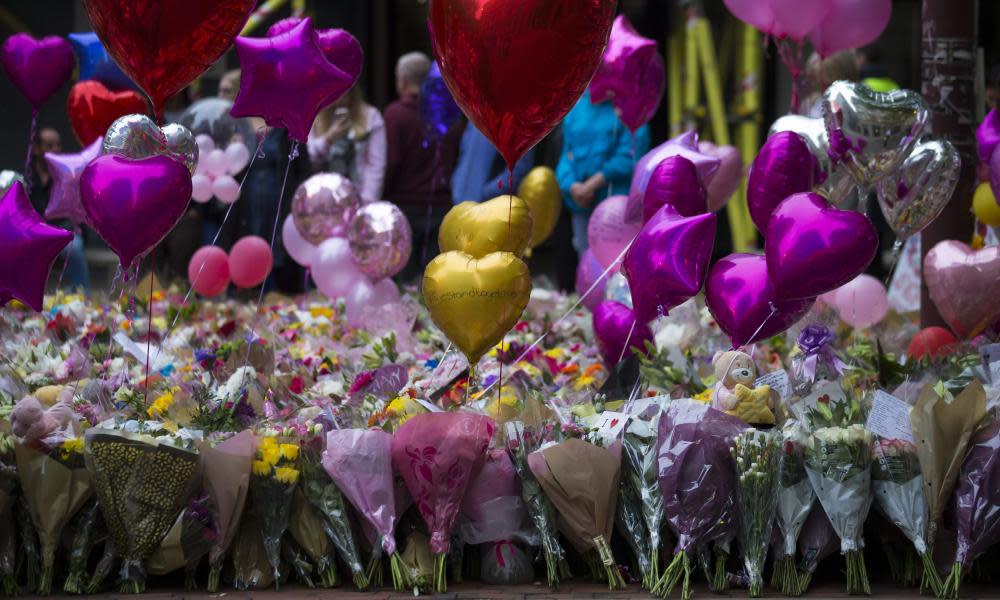Mental health system must improve, say terror attack survivors

Survivors of terrorist attacks have called for dramatic improvements in mental health care, in a report that highlights how some have had to wait more than a year for counselling to help them deal with the emotional trauma.
The report includes the findings of a nationwide poll of attack survivors, revealing that 76% believe the mental health system needs improvement. Of these, three-quarters felt the improvement needed was dramatic.
One victim quoted in the report was still waiting to see a psychologist 14 months after an attack. Another, a child, waited 11 months. Others said it seemed that mental health support was deemed less important for those not physically injured.
Ruth Murrell, 48, and her daughter Emily, 14, spent five and a half weeks recovering in hospital after the Manchester Arena attack. Murrell, from Copster Green in the Ribble Valley, witnessed the death of her friend Michelle Kiss, 41, who had attended a concert at the arena with her own daughter.
After she was discharged, Murrell, who had bought the tickets for the group to attend the Ariana Grande concert that day, suffered flashbacks, panic attacks and episodes of extreme guilt.
“I couldn’t leave the house because I was frightened; I couldn’t go to the supermarket or anything, I didn’t want to leave my bed,” she said. “I couldn’t eat, I couldn’t sleep, I was vomiting and retching every single day because of this anxiety, and it got to the point where I got so incredibly low that I wanted to just put an end to it all.”
Emily suffered too, lying awake at night, struggling at school after three and a half months off recovering, and switching between anger and periods of withdrawal. But when Murrell approached her GP for help, he was only able to offer her antidepressants and a referral to a year-long waiting list for counselling, and a place on the child and adolescent mental health services waiting list for her daughter.
Emily began receiving counselling in February, nine months after the attack. Murrell had to pay for private treatment for herself using donations from the public.
Stephen Regel, a clinical director at a specialist PTSD clinic in Nottingham, , said underfunding, waiting lists and stretched workforces plagued NHS mental health care.
“I’m going through dozens of referrals where I’m going to have to write back to them and say I’m afraid we can’t actually take this at the moment because there isn’t the resources to do it,” he said. “I do think – and I’ve worked in mental health a long time – that things have never been this tough.”
He said PTSD responded better to prompt treatment. “The longer the problem exists, the more avoidant the person becomes, the more complex the nature of the trauma,” he said.
Some patients might end up referred to services that were inappropriate for their condition, such as a short course of talking therapy that left problems only half-resolved, he said.
The survey, conducted by Kantar on behalf of Survivors Against Terror, included 271 survivors of attacks ranging from the Hyde Park and Brighton bombings by the IRA in the 1980s to more recent atrocities.
Charlotte Dixon Sutcliffe, the chair of Survivors Against Terror, said: “Governments promise survivors they will be looked after, but this survey shows that when it comes to mental health services they are being routinely let down.”
A government spokesperson said: “Those affected by terrorist attacks rightly expect effective, comprehensive assistance. The report found that in many areas survivors rate the support they receive highly, but there is clearly more to do.
“Following the attack in Manchester, we provided funding for specialist mental health support in the city and the government’s victims of terrorism unit will continue to ensure the support for those affected by attacks both at home and abroad is swift and coordinated.”

 Yahoo News
Yahoo News 
